Services
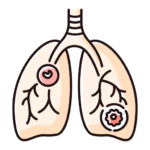
Chronic Obstructive Pulmonary Disease
Chronic Obstructive Pulmonary Disease (COPD) is a progressive lung condition characterized by airflow limitation and breathing difficulties, primarily caused by smoking and environmental factors.

Asthma
Asthma is a chronic respiratory condition characterized by inflammation and narrowing of the airways, leading to recurrent episodes of wheezing, coughing, chest tightness, and shortness of breath.

Pneumonia
Pneumonia is an inflammatory lung infection often caused by bacteria, viruses, or fungi, leading to symptoms such as fever, cough, chest pain, difficulty breathing, fatigue, and chills.
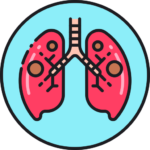
Tuberculosis (TB)
Tuberculosis (TB) is a contagious bacterial infection primarily affecting the lungs, characterized by symptoms like coughing, chest pain, weight loss, and fatigue.
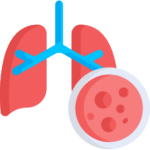
Lung Cancer
Lung cancer: malignant lung tumor often linked to smoking, presenting symptoms like cough, chest pain, and breathlessness.
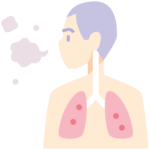
Interstitial Lung Disease
Interstitial lung disease: group of disorders causing inflammation and scarring of lung tissue, leading to symptoms like cough, shortness of breath, and fatigue.

Pulmonary Hypertension
Pulmonary hypertension: elevated blood pressure in the arteries of the lungs, resulting in symptoms such as shortness of breath, fatigue, and chest pain.
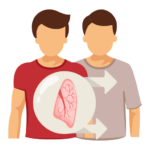
Lung Transplant
Lung transplant: surgical procedure replacing diseased lungs with healthy ones from a donor, often used in end-stage lung diseases like COPD and pulmonary fibrosis.
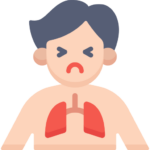
Pulmonary Fibrosis
Pulmonary fibrosis: progressive lung disease characterized by scarring and thickening of lung tissue, leading to symptoms like shortness of breath, persistent cough, and fatigue.